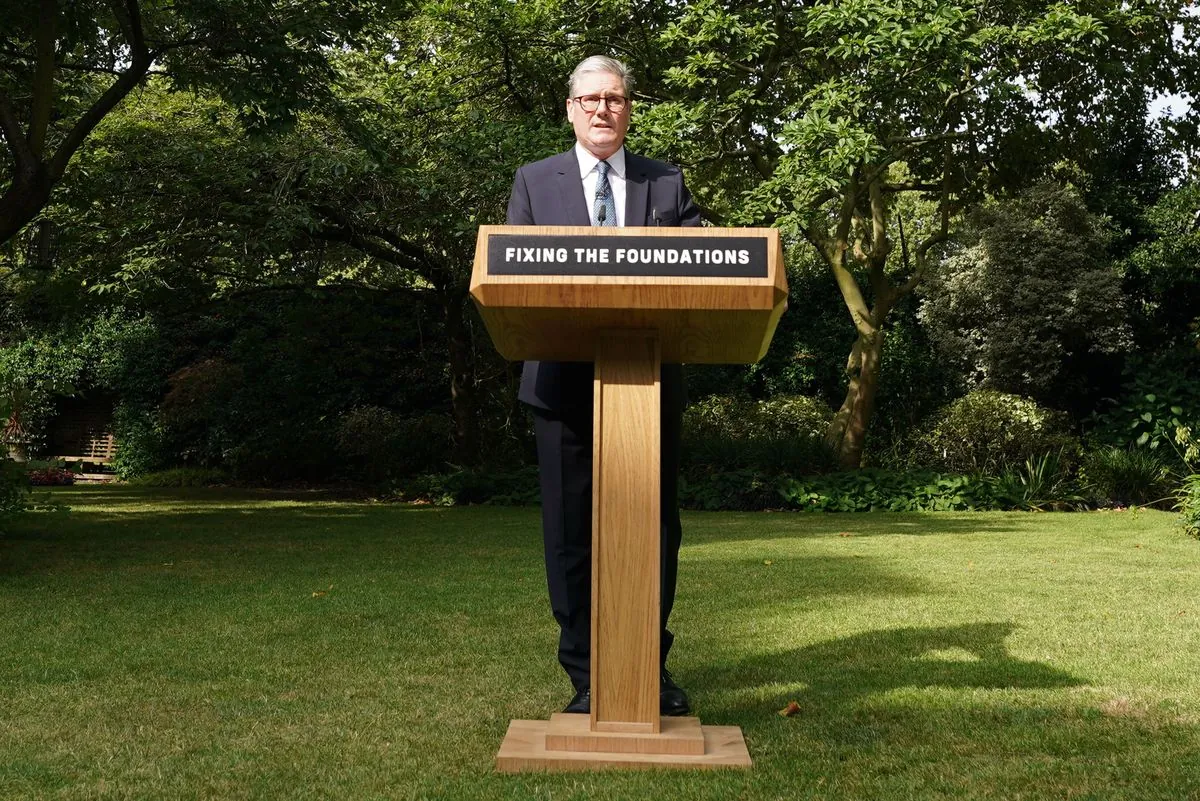UK Prime Minister Hints at Tax Hikes, Sparking Middle-Class Concerns
Prime Minister's speech suggests potential tax increases in upcoming Autumn Budget, causing anxiety among middle-class families and investors. Financial advisors report surge in inquiries about minimizing tax impact.

In a recent address, the UK Prime Minister hinted at potential tax increases in the forthcoming Autumn Budget, scheduled for October 30, 2024. This announcement has sparked concern among middle-class families and investors, particularly regarding possible changes to capital gains tax.
The Prime Minister's speech, delivered to 50 members of the public in the historic Downing Street rose garden, emphasized the need for those with "the broadest shoulders" to bear a heavier financial burden. This statement has led to speculation that the government may align capital gains tax rates with income tax rates, potentially increasing the higher rate from 20% to 45%.

In response to this possibility, wealth managers report a surge in inquiries from anxious clients. Many individuals are considering selling shares and properties to avoid potential higher tax rates. Tim Stovold, from accountancy firm Kingston Moore Smith, noted:
"This fear that the rate is going to go up has created this frenzy of people selling assets or giving assets down the generations to trigger capital gains tax now, at a rate that everybody's fairly happy with: a 20 per cent rate of tax or lower, depending on what the asset is."
The buy-to-let sector may face significant changes if landlords decide to sell properties preemptively. Research from Capital Economics suggests the private rental sector could lose up to 900,000 properties as a result.
Concerns also extend to potential modifications in inheritance tax. Some individuals are utilizing the annual £3,000 tax-free gift allowance, fearing future restrictions.
The Prime Minister's speech has reignited debate over the definition of "working people" in relation to tax pledges. While previous statements suggested a broader interpretation, recent clarifications appear to narrow the scope to specific taxes like income tax, VAT, and National Insurance.
Amidst these financial discussions, the NHS faces its own challenges. Matthew Taylor, head of the NHS confederation, has warned that without a £3.2 billion injection, waiting lists could increase further.
As the October 30 Budget approaches, the government faces the complex task of addressing a £22 billion deficit in public finances while managing public expectations and economic consequences.


































